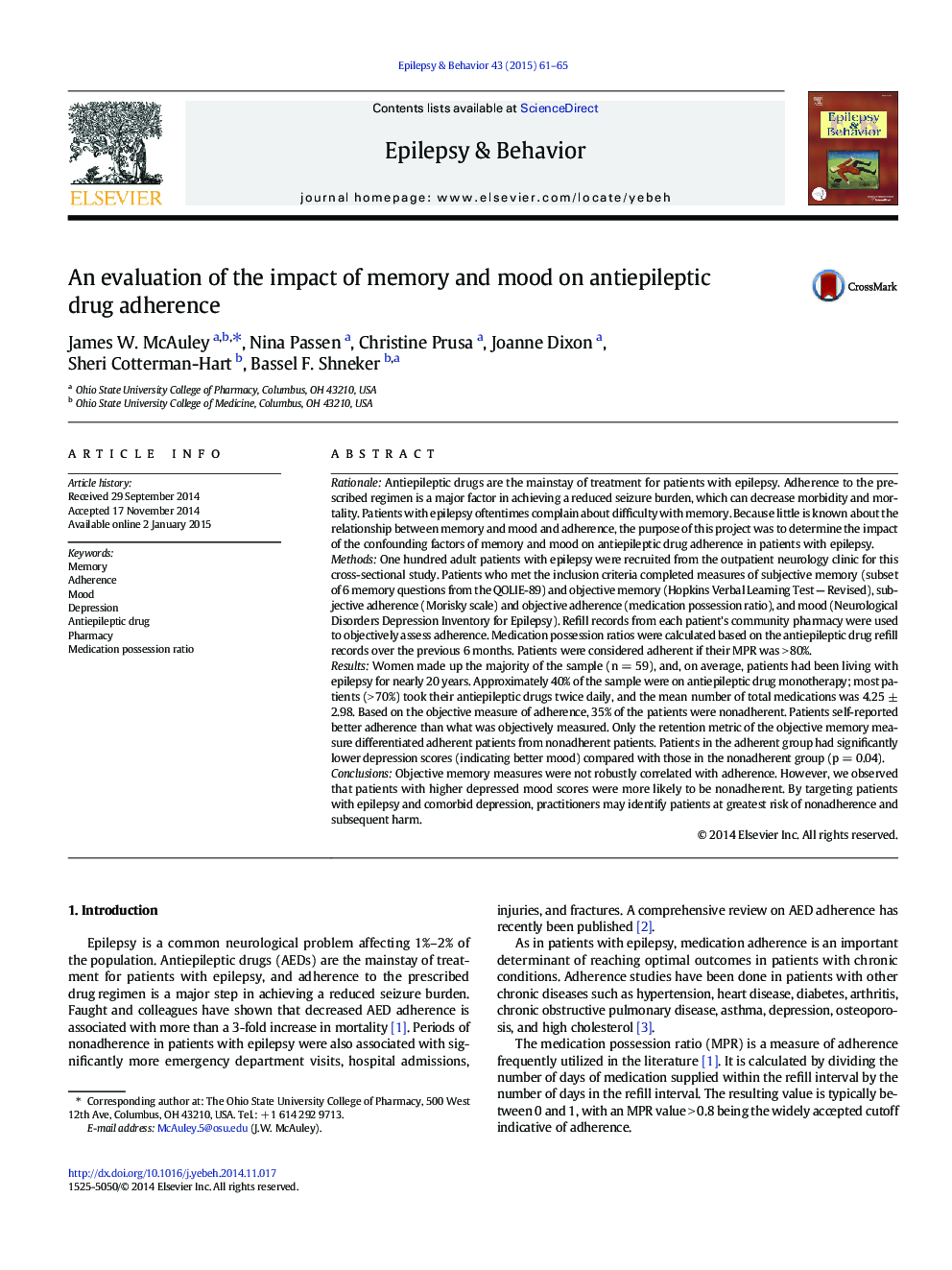| کد مقاله | کد نشریه | سال انتشار | مقاله انگلیسی | نسخه تمام متن |
|---|---|---|---|---|
| 6011426 | 1579846 | 2015 | 5 صفحه PDF | دانلود رایگان |
- Just over one-third (35%) of our patients were nonadherent with their AEDs.
- Patients self-reported better adherence than what was objectively measured.
- Objective memory measures were not robustly correlated with adherence.
- Adherent patients had significantly lower depression scores (indicating better mood).
- By targeting comorbid depression, we may identify patients at greatest risk of nonadherence.
RationaleAntiepileptic drugs are the mainstay of treatment for patients with epilepsy. Adherence to the prescribed regimen is a major factor in achieving a reduced seizure burden, which can decrease morbidity and mortality. Patients with epilepsy oftentimes complain about difficulty with memory. Because little is known about the relationship between memory and mood and adherence, the purpose of this project was to determine the impact of the confounding factors of memory and mood on antiepileptic drug adherence in patients with epilepsy.MethodsOne hundred adult patients with epilepsy were recruited from the outpatient neurology clinic for this cross-sectional study. Patients who met the inclusion criteria completed measures of subjective memory (subset of 6 memory questions from the QOLIE-89) and objective memory (Hopkins Verbal Learning Test - Revised), subjective adherence (Morisky scale) and objective adherence (medication possession ratio), and mood (Neurological Disorders Depression Inventory for Epilepsy). Refill records from each patient's community pharmacy were used to objectively assess adherence. Medication possession ratios were calculated based on the antiepileptic drug refill records over the previous 6 months. Patients were considered adherent if their MPR was > 80%.ResultsWomen made up the majority of the sample (n = 59), and, on average, patients had been living with epilepsy for nearly 20 years. Approximately 40% of the sample were on antiepileptic drug monotherapy; most patients (> 70%) took their antiepileptic drugs twice daily, and the mean number of total medications was 4.25 ± 2.98. Based on the objective measure of adherence, 35% of the patients were nonadherent. Patients self-reported better adherence than what was objectively measured. Only the retention metric of the objective memory measure differentiated adherent patients from nonadherent patients. Patients in the adherent group had significantly lower depression scores (indicating better mood) compared with those in the nonadherent group (p = 0.04).ConclusionsObjective memory measures were not robustly correlated with adherence. However, we observed that patients with higher depressed mood scores were more likely to be nonadherent. By targeting patients with epilepsy and comorbid depression, practitioners may identify patients at greatest risk of nonadherence and subsequent harm.
Journal: Epilepsy & Behavior - Volume 43, February 2015, Pages 61-65
